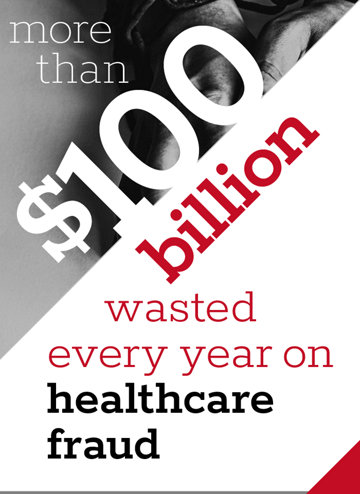“A psychiatrist who is a lawbreaker might be ethically unsuited to practice his or her profession.” —American Psychiatric Association Principles of Medical Ethics
The mental health industry has an addiction: Medicaid fraud.
As any addiction specialist will tell you, an addict has his triggers—people, things, situations that spark the cravings, making them helpless to resist.
Psychiatry and its sister fields—counseling, psychology and other behavioral treatment businesses—have one common trigger: money. More than $100 billion of your taxpayer dollars vanish annually into healthcare fraud, with the “behavioral health” industry as a top offender.
Translation: They lied to get money.
Addicts will resort to desperate, often outrageous measures to slake their habit: subterfuge, lies, outright theft are but a few examples. Loved ones are commonly astonished at the lengths a friend or family member will go to get their fix.
So it is with those in the behavior modification game. Double-billing is a favorite trick—give one session, charge for two, as NUWAY Alliance in Minneapolis did, bilking $18.5 million. Others bill for dead patients, pad five minutes of therapy into 45 or, as was done in Arizona, defraud entire communities (including thousands of Navajo clients, in this case), ripping off Medicaid for $2.8 billion in one felonious fell swoop.
The latest bunco bust was of Comprehensive Psychiatric Services (CPS) of Walnut Creek, California, which just agreed to pay $2.75 million to resolve allegations of submitting false claims to government healthcare programs for psychotherapy services from January 1, 2015, through December 31, 2022. The settlement claims that CPS improperly billed Uncle Sam for “services” they didn’t provide.
Translation: They lied to get money. They claimed ABCD, but never made it past A.

It’s cushy work if you can get it: Prey on people when they’re at their most vulnerable, say you helped them when you didn’t, then send the bill to Daddy (aka Medicaid, aka the government, aka us taxpayers).
“Holding healthcare providers accountable for submitting false claims to federal healthcare programs is crucial for ensuring that taxpayer funds are appropriately used and for maintaining the American public’s trust,” said a Department of Health and Human Services (HHS) Office of Inspector General agent.
Easier said than done.
Imagine an addict experiencing an intervention. There he is, surrounded by concern and love. He finally admits he needs help and goes and gets it, motivated by the realization that he’s destroying himself and hurting his family and friends.
“Intervention” for the mental health industry’s addiction to dollars, by contrast, too often consists of “settlements”—mostly for fraud—without admitting wrongdoing, even sometimes casting themselves as targets of an unfair system. NUWAY, for example, insisted it did nothing wrong and even whined about lack of due process.
Boo-hoo.
With that kind of wrist-slap justice, what are the odds psychiatrists and psychologists—who, according to a former HHS Inspector General, “have the worst fraud record of all medical disciplines”—will ever quit on their own?
When an addict won’t stop, some say “tough love” is the only answer—drag him off to rehab, even if he’s kicking and screaming.
How about some tough love for the mental health fraudsters? Cancel their licenses. Try them for theft. Let them stew in prison for a decade or three.
That would be showing them more mercy than they’ve ever shown their victims—patients left untreated, harmed and even killed, families betrayed and taxpayers robbed.






















